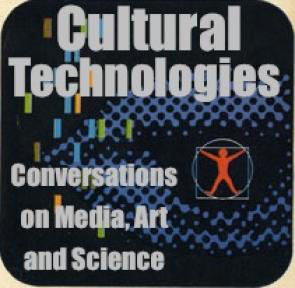
Interregnum
Anarchist Without Content
Interregnum began as the radical theory playlist of my commute. Its aim is to deepen the gaps between work and leisure. Key reference points are French post-structuralist philosophy, anarchist nihilism, anti-state communism, and queer feminism.
- On Maurice Blanchot and the Political: A conversation about political writing, refusing authority, and politicizing the written wordhttps://ia601504.us.archive.org/33/items/on-blanchot/1462-2010-10-26-1-paul.mp3
Slought is pleased to announce “On Maurice Blanchot and the Political,” a conversation on the political works of Maurice Blanchot, on Tuesday, October 26th, 2010 from 6:30pm to 8:00pm. It will feature Zakir Paul, Ann Smock, and Helen Tartar in conversation and will be moderated by Jean-Michel Rabate. The event serves as the book launch for Maurice Blanchot, Political Writings 1953-1993, translated and edited by Zakir Paul and recently published by Fordham University Press.
The young Blanchot first emerged as a journalist committed to the far right. He reached adulthood during what Emmanuel Mounier ironically called the time of le désordre établi, the established disorder. Fascism and communism were both vying for supremacy in a world in which France seemed weak and impotent, threatened by an impending war it could not win. What frightened Blanchot was the specter of Homo Europaeus, a creature who risks having no politics or thought and attains only mediocrity. Blanchot’s earlier political journalism reminds us how deceptively facile it is to refuse established forms of authority. However, only after the war was he able to reformulate his task as one of learning not only how to refuse but how to sustain the power of refusal through “rigor of thought and modesty of expression.”
Maurice Blanchot, Political Writings 1953-1993 collects documents, which range in subject from the French-Algerian War and the mass movements of May 1968 to postwar debates about the Shoah and beyond. A large number of the featured tracts, letters, and fragments were written anonymously and signed collectively, often in response to current events. The topics he addresses include the right to insubordination in the French-Algerian War, the construction of the Berlin Wall and repression in Eastern Europe, the mass movements of 1968, and personal responses to Heidegger, Levinas, and Robert Antelme, among others. When read together they form a testament to what political writing could be: not merely writing on the political, nor politicizing the written word, but transforming the singular authority of the writer and his signature unalterably.
READ MORE
Maurice Blanchot, one of the most important voices in twentieth-century literature and thought, was a writer, critic, and journalist who had a major influence on thinkers such as Foucault, Derrida, Nancy, and many others. Both his fiction and his criticism played a determining role in how postwar French philosophy was written, especially in its intense concern with the question of writing as such.Never an academic, he published most of his critical work in periodicals and led a highly private life. Yet his writing included an often underestimated public and political dimension. Although over his lifetime his politics changed radically – from the far right to the far left, and then to the side of the far left – he remained constant in his rejection of party and in his affirmation of dissidence.
“At a certain moment, when faced with public events, we know that we must refuse. Refusal is absolute, categorical. It does not discuss or voice its reasons. This is how it remains silent and solitary, even when it affirms itself, as it should, in broad daylight. Those who refuse and who are bound by the force of refusal know that they are not yet together. The time of common affirmation is precisely what has been taken away from them. What they are left with is the irreducible refusal, the friendship of this sure, unshakable, rigorous No that unites them and determines their solidarity.”
— Maurice Blanchot, “Refusal,” in Maurice Blanchot, Political Writings 1953-1993
18 January 2018, 8:35 pm - Deleuze’s Politics, Day 3, Part 2
Daniel W Smith discussed Gilles Deleuze and Felix Guattari’s works Anti-Oedipus & A Thousand Plateaus at the Collegium Phaenomenologicum 2009. Smith, a professor of philosophy at Purdue University, is a leading expert of Deleuze and Guattari’s work. In these lectures, he lucidly outlines the theories and implications of the most political sections of Deleuze and Guattari’s work while giving special attention to the primary source materials and philosophical arguments that the authors utilized to make their argument.
http://ia601506.us.archive.org/0/items/Deleuze-Politics/9-3rdDay2ndHalf-clean.mp3 Day 3: A Thousand Plateaus & Nomadology On this day, Smith presents Deleuze and Guattari’s nomadology from A Thousand Plateaus, with an eye to their description of society without a state. The second lecture is dedicated to question & answer.11 December 2017, 3:59 am - Deleuze’s Politics, Day 3, Part 1
Daniel W Smith discussed Gilles Deleuze and Felix Guattari’s works Anti-Oedipus & A Thousand Plateaus at the Collegium Phaenomenologicum 2009. Smith, a professor of philosophy at Purdue University, is a leading expert of Deleuze and Guattari’s work. In these lectures, he lucidly outlines the theories and implications of the most political sections of Deleuze and Guattari’s work while giving special attention to the primary source materials and philosophical arguments that the authors utilized to make their argument.
http://ia601506.us.archive.org/0/items/Deleuze-Politics/8-3rdDay1stHalf-clean.mp3 Day 3: A Thousand Plateaus & Nomadology On this day, Smith presents Deleuze and Guattari’s nomadology from A Thousand Plateaus, with an eye to their description of society without a state. The second lecture is dedicated to question & answer.11 December 2017, 3:51 am - Deleuze’s Politics, Day 2 Part 1
(Unfortunately Part 2 was not recorded.)
Daniel W Smith discussed Gilles Deleuze and Felix Guattari’s works Anti-Oedipus & A Thousand Plateaus at the Collegium Phaenomenologicum 2009. Smith, a professor of philosophy at Purdue University, is a leading expert of Deleuze and Guattari’s work. In these lectures, he lucidly outlines the theories and implications of the most political sections of Deleuze and Guattari’s work while giving special attention to the primary source materials and philosophical arguments that the authors utilized to make their argument.
http://ia601506.us.archive.org/0/items/Deleuze-Politics/7-2ndDay1stHalf-clean.mp3 Day 2: Anti-Oedipus & The Human (missing part 2) On this day of talks, Smith describes the anthropology chapter of Anti-Oedipus. In the first lecture, Smith covers the Savage and Despotic formations. Unfortunately, the second lecture, in which Smith described the Capitalism formation, was not recorded.11 December 2017, 3:50 am - Deleuze’s Politics, Day 1
Daniel W Smith discussed Gilles Deleuze and Felix Guattari’s works Anti-Oedipus & A Thousand Plateaus at the Collegium Phaenomenologicum 2009. Smith, a professor of philosophy at Purdue University, is a leading expert of Deleuze and Guattari’s work. In these lectures, he lucidly outlines the theories and implications of the most political sections of Deleuze and Guattari’s work while giving special attention to the primary source materials and philosophical arguments that the authors utilized to make their argument.
http://ia601506.us.archive.org/0/items/Deleuze-Politics/6-1stDay-clean.mp3 Day 1: Anti-Oedipus & Desire In this talk, Smith discusses Deleuze and Guattari’s ambitious reworking of psychoanalysis, especially with their notions of desire and the unconscious. Day 2: Anti-Oedipus & The Human (missing part 2) On this day of talks, Smith describes the anthropology chapter of Anti-Oedipus. In the first lecture, Smith covers the Savage and Despotic formations. Unfortunately, the second lecture, in which Smith described the Capitalism formation, was not recorded. Day 3: A Thousand Plateaus & Nomadology On this day, Smith presents Deleuze and Guattari’s nomadology from A Thousand Plateaus, with an eye to their description of society without a state. The second lecture is dedicated to question & answer. The reading materials for the lectures was – Deleuze & Guattari, Anti-Oedipus, “Savages, Barbarians, Civilized Men,” 139 – 271 Continuum Version, 141 – 164 Minnesota Version. – Deleuze & Guattari, A Thousand Plateaus, “1227: Treatise on Nomadology–The War Machine,” & “7000 B.C.: Apparatus of Capture,” 387 – 522 Continuum Version, 351- 473 Minnesota Version.11 December 2017, 2:08 am - Sandy Stone Keynote Performance, Gender Bodies & Technology 2014
Sandy Stone talk about gender and performance.
http://ia601503.us.archive.org/33/items/SandyStoneKeynotePerformanceGenderBodiesTechnology2014Fixed/Sandy%20Stone%20Keynote%20performance,%20Gender%20Bodies%20&%20Technology%202014%20-%20fixed.mp321 September 2016, 3:21 am - Susan Stryker
Susan Stryker delivering an impressive transgender history covering the last 150 years in the United States.
http://ia601500.us.archive.org/4/items/SusanStryker/Susan%20Stryker.mp321 September 2016, 3:20 am - Sandy Stone And Kate BornsteinConversation between Sandy Stone and Kate Bornstein about transgender issues. Lots of stories and they field questions from the audience.
http://ia601505.us.archive.org/19/items/SandyStoneAndKateBornstein/Sandy%20Stone%20and%20Kate%20Bornstein.mp321 September 2016, 3:20 am - Transdisciplinarity Response To CorbettDiscussion following Ken Corbett’s talk on psychoanalysis, gender, and queerness. http://ia801500.us.archive.org/28/items/0720120518TransdisciplinarityLynneSegalResponseToCorbett/07%202012_05_18_Transdisciplinarity_LynneSegal_ResponseToCorbett.mp321 September 2016, 3:19 am
- Transdisciplinarity Corbett Talk
Ken Corbett on psychoanalysis, gender, and queerness.
http://ia801501.us.archive.org/18/items/0520120518TransdisciplinarityKenCorbettTalk/05%202012_05_18_Transdisciplinarity_KenCorbett_talk.mp321 September 2016, 3:17 am - Transdisciplinarity Heinamaa Talk
Sara Heinamaa on phenomenology, sex, and gender.
http://ia601500.us.archive.org/18/items/0620120518TransdisciplinaritySaraHeinamaaTalk/06%202012_05_18_Transdisciplinarity_SaraHeinamaa_talk.mp321 September 2016, 3:16 am - More Episodes? Get the App
Your feedback is valuable to us. Should you encounter any bugs, glitches, lack of functionality or other problems, please email us on [email protected] or join Moon.FM Telegram Group where you can talk directly to the dev team who are happy to answer any queries.
 Resonance: An Anarchist Audio Distro
Resonance: An Anarchist Audio Distro
 The Dissonance of Things
The Dissonance of Things
 Anarchist Oral History
Anarchist Oral History
 Another World Is Possible
Another World Is Possible
 Cultural Technologies
Cultural Technologies
 Podcast – The Anarchist Experience
Podcast – The Anarchist Experience